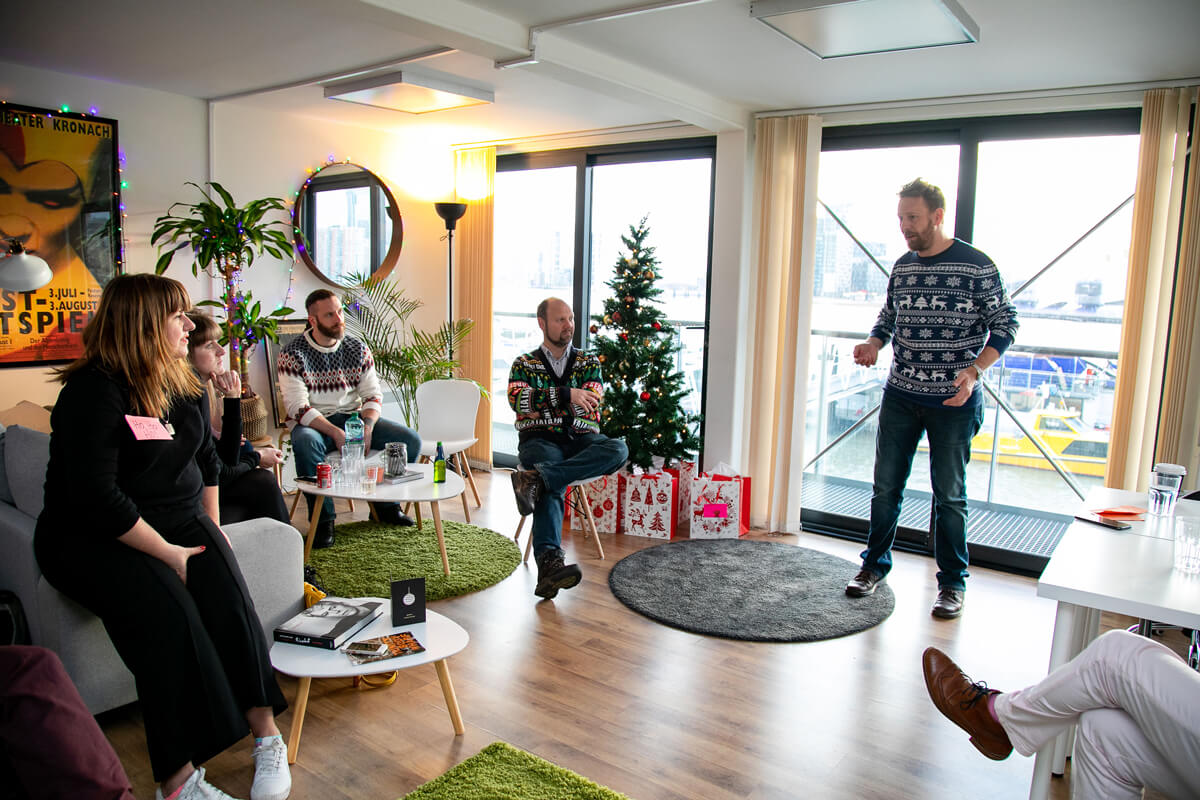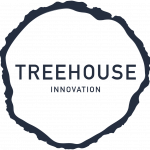5 lessons we learnt from pivoting in a pandemic
Like so many businesses this year, all of a sudden we found ourselves having to adapt our approach – and quickly – to meet the needs of a new world.
We wanted to share what we learned during this period, and to start a conversation about what others will take from 2020, too.
What happened
Until this year, Treehouse Innovation has been a primarily face-to-face human-centred design business. We work with organizations around the world to help them use design thinking to transform the way they work, solve problems, and build truly innovative cultures. We love what we do and, after ten years, we started the year confident that we knew how to give our clients what they wanted.
But then COVID-19 struck, and so much changed.
We sat in our office in March and saw the majority of the work we had planned get cancelled. People weren’t going to be travelling for the foreseeable future. They weren’t going to be coming together for events. And they weren’t going to have meetings with anybody in person for a long time.
It was definitely a scary moment. Like so many organizations at that exact same time, we had to update our understanding of what people wanted now, and how we could help them in this new, evolving environment.
The question was: How can we continue to support our clients – and help others in need of our services find us – during the pandemic, and long term in a more remote world?
The story of what’s happened since is best told through the lessons it’s taught us.
Test your assumptions quickly
When the pandemic began, we assumed that clients would want to work with us in the same way they had before, just online. But we were wrong.
We started speaking to people straight away to test that assumption, and soon discovered that, more than anything else, people wanted to use design thinking to address and find solutions to the challenges they were facing right now to help them navigate this crisis.
In 2018, we created Sprintbase, the remote innovation platform – so we already had an established, unique tool in place to help us work with clients remotely. In the past, Sprintbase had been used to support remote project teams over a period of weeks to months, with the emphasis on asynchronous working, and in-person kick-off events whenever possible.
But now, people wanted to use it differently. While the multi-month use case was still essential, we were suddenly being asked how best to support shorter, primarily synchronous workshops and live activities – sometimes with 100s of people at once, not just for design teams.
We had to figure out how to translate big events and live workshop experiences that were traditionally face-to-face into a compelling remote format – and in the process, reimagine many of those experiences entirely.
Finding out early how people’s needs had changed meant we could focus on further developing the platform to meet them – including building entirely new functionality at pace to support great, synchronous and asynchronous innovation work.
This experience showed how important it is when a challenge arises to test your assumptions early, to ensure you focus your time and resources on the right things.
Talk to people
We’ve always believed deeply in the importance of relationships, and this crisis has shown just how true that is.
Being able to pick up the phone to talk to trusted partners, colleagues and friends to get their take on what was happening, and their feedback on our ideas made such a huge difference.
These people were instrumental in helping us design entirely new experiences, shift the way we articulated ourselves, and test what we developed.
When we had a new product or offer we wanted to put out, we would create a prototype, and keep iterating based on the feedback we received. There’s nothing more helpful when you’re right in the thick of a problem than getting a range of perspectives to help you find the right solution.
This isn’t a straightforward environment to work in, and we’ve kept talking to people about what’s working and what’s not, and constantly adapting as we go. Staying in touch and being open and honest about what we’re all facing has helped us not only figure out how to best serve people now, but also form closer, more meaningful relationships with clients, partners and colleagues around the world.

Lean into the challenge, together
When the initial shock had worn off, we realised that to work through this challenge, we needed to lean into it.
Central to that was our team. We know that so many organizations have had to reduce the size of their teams this year. At this point, ours remains as it was before, and we’re so glad that is the case.
However, we have been through a huge level of change. We realigned our roles to meet clients’ needs, and pivoted from arranging and leading face to face work to running virtual workshops and projects.
We also decided to invest in the things that would help us keep moving forward during this time. For example, we quickly increased our marketing efforts for Sprintbase to help people suddenly needing to do innovation work remotely find the platform.
Leaning into the challenge, rather than resisting it, has helped us stay agile through an unpredictable time.
Transparency is key
We have a small but super engaged and dynamic team here at Treehouse, so, to get the best from our people and bring everybody with us on this unexpected journey, we needed to start being much more transparent about our work and what’s happening.
We’ve fundamentally changed the way we collaborate, track our work and measure our progress. We now have all-hands meetings where we share with everybody where we are financially and our next steps.
It’s been so powerful having everybody understand where we’re at and what we’re working towards, and it’s really motivated the team to each play their part in helping take us forward. This is definitely something we’ll keep doing as a business in the long term.
Take note of what you learn
Whenever you’re facing any kind of challenge, it’s so important to capture the lessons you’ve learnt from it.
Taking stock of what helped you work through the problem, and the habits and methods you adopted will make you quicker to respond to unexpected change next time it comes around.
There’s no doubt that this year has been a real rollercoaster for all of us, but there have been huge positives that will only make us stronger. At Treehouse, we’ve gained more experience in what it means to be truly adaptable than any of us could have imagined, and we look forward to taking all of it with us into 2021 and beyond, and to keep helping our clients create cultures of innovation that enable them to do the same.
If you’d like to talk about how we can help you use design thinking to tackle the challenges you’re facing right now, get in touch.

